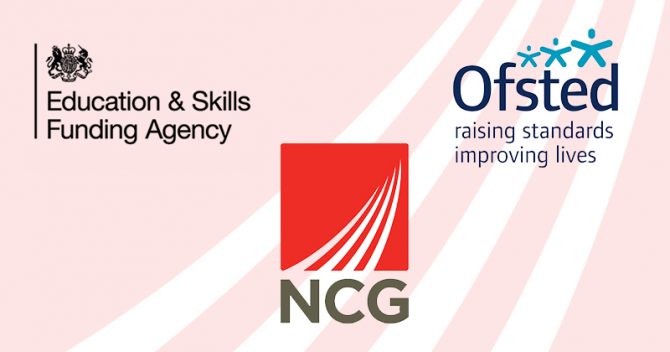The summer term has kicked off on a solid footing with two colleges and one university being graded ‘good’ while one dance and drama college was rated ‘outstanding’.
However, the good news was slightly overshadowed by two ‘inadequate’ full inspections and three ‘insufficient’ monitoring visits.
Liverpool Theatre School & College Limited was upgraded to ‘outstanding’ after Ofsted found teachers have extensive industry experience and students’ work ethic is “excellent”.
Inspectors said students receive “extensive, high-quality advice and guidance” from teachers and develop their skills and performance quality to a “very high standard”.
Meanwhile, Furness College secured its ‘good’ rating in its first inspection since its merger with Barrow-in-Furness Sixth Form College, which Ofsted said leaders and managers have managed “effectively”.
Teachers were recognised for using their professional and industrial experience successfully to help learners and apprentices to develop high-level technical skills, who benefit from “high-quality impartial careers advice and guidance” and from a “well-developed and wide-ranging programme”.
Bridgwater Taunton College also received its first inspection after its merger between Bridgwater College and Somerset College of Arts. The college was rated ‘good’ but five out of the seven provisions were rated as ‘outstanding’.
The college was found to have leaders with “determined and ambitious” actions and who managed the merger “extremely well”. Further improvements continue “apace”, the report said.
Coventry University saw its overall grade increase from three to two across the board thanks to senior managers and governors working “very effectively” to address the recommendations from the previous inspection.
The report said there has been a “steady and sustained improvement” in achievement rates for learners and apprentices.
In more negative news, Be A Better You Training Limited, a loans-only provider, was rated ‘inadequate’ after Ofsted found it was using banned subcontracting.
Nottinghamshire Training Network was also hit with the lowest possible rating after receiving six consecutive ‘requires improvement’ ratings since opening its doors.
EMD UK Limited received a grade three in its first-ever inspection after its leaders and managers failed to take “swift enough action” to improve its programmes and failed to ensure that learners benefit from high-quality impartial careers advice and guidance.
The report said staff do not prepare learners sufficiently to work in commercial settings, but recognised a high proportion of them achieve their intended qualifications.
Develop-U fell from ‘good’ to ‘requires improvement’ just two months after a ‘reasonable progress’ monitoring visit. Ofsted said the provider has not yet had time to demonstrate the impact of actions it took following the visit, and that leaders and managers do not evaluate the quality or raise the standard of teaching, learning and assessment well enough.
In its first monitoring visit, Arriva London North Limited was found making ‘insufficient progress’ across the board as its leaders and managers “lack the expertise to provide successful apprenticeship provision” and fail to implement quality assurance processes to identify the strengths and weaknesses of the quality of training.
Cogent Skills Training Limited was also rated ‘insufficient’ in its first visit as leaders and managers do not ensure that they meet all the principles and requirements of an apprenticeship. Ofsted found a small minority of the apprentices did not realise they were enrolled on an apprenticeship. The provider claimed this was just one apprentice.
Elsewhere, The Intraining Group Limited, part of NCG, received a monitoring visit following its grade three inspection last year, where Ofsted found it has made ‘insufficient progress’ across three provisions and ‘reasonable progress’ in one.
Southport College received one ‘significant progress’ and three ‘reasonable’ in its first visit since merging with King George V sixth form college in January, while Strive Training received two ‘significant’ and one ‘reasonable progress’ ratings.
Three providers – Workpays Limited, Just I.T. Training, Adalta Development and The Chartered Institute of Housing – were all found to have made ‘reasonable progress’ across the board in their early monitoring visit reports of their apprenticeship provision.
Lastly, Ofsted rated the apprenticeship provision at The Newcastle Upon Tyne Hospitals NHS Foundation Trust with two ‘reasonable progress’ and one ‘significant progress’.
“The trust recruits apprentices into genuine job vacancies and guarantees apprentices continued employment on completion of their programmes,” Ofsted found.
| GFE Colleges | Inspected | Published | Grade | Previous grade |
| Southport and King George V College | 13/03/2019 | 25/04/2019 | M | n/a |
| Furness College | 12/03/2019 | 26/04/2019 | 2 | 2 |
| Bridgwater and Taunton College | 05/03/2019 | 25/04/2019 | 2 | n/a |
| Independent Learning Providers | Inspected | Published | Grade | Previous grade |
| Be A Better You Training Limited | 12/03/2019 | 25/04/2019 | 4 | n/a |
| EMD UK Limited | 05/03/2019 | 23/04/2019 | 3 | n/a |
| Just I.T. Training Limited | 21/03/2019 | 26/04/2019 | M | n/a |
| Strive Training (London) Limited | 26/03/2019 | 25/04/2019 | M | n/a |
| Workpays Limited | 27/03/2019 | 23/04/2019 | M | n/a |
| Adalta Development Ltd | 19/03/2019 | 26/04/2019 | M | n/a |
| The Chartered Institute of Housing | 11/04/2019 | 26/04/2019 | M | n/a |
| Cogent Skills Training Limited | 21/03/2019 | 26/04/2019 | M | n/a |
| Arriva London North Limited | 27/03/2019 | 26/04/2019 | M | n/a |
| Nottinghamshire Training Network | 26/02/2019 | 25/04/2019 | 4 | 3 |
| Develop-U | 20/03/2019 | 25/04/2019 | 3 | 2 |
| The InTraining Group Limited | 13/03/2019 | 26/04/2019 | M | 3 |
| Employer providers | Inspected | Published | Grade | Previous grade |
| The Newcastle Upon Tyne Hospitals NHS Foundation Trust | 19/03/2019 | 26/04/2019 | M | n/a |
| Other (including UTCs) | Inspected | Published | Grade | Previous grade |
| Coventry University | 26/03/2019 | 23/04/2019 | 2 | 3 |
| Liverpool Theatre School & College Limited | 27/02/2019 | 25/04/2019 | 1 | 2 |



